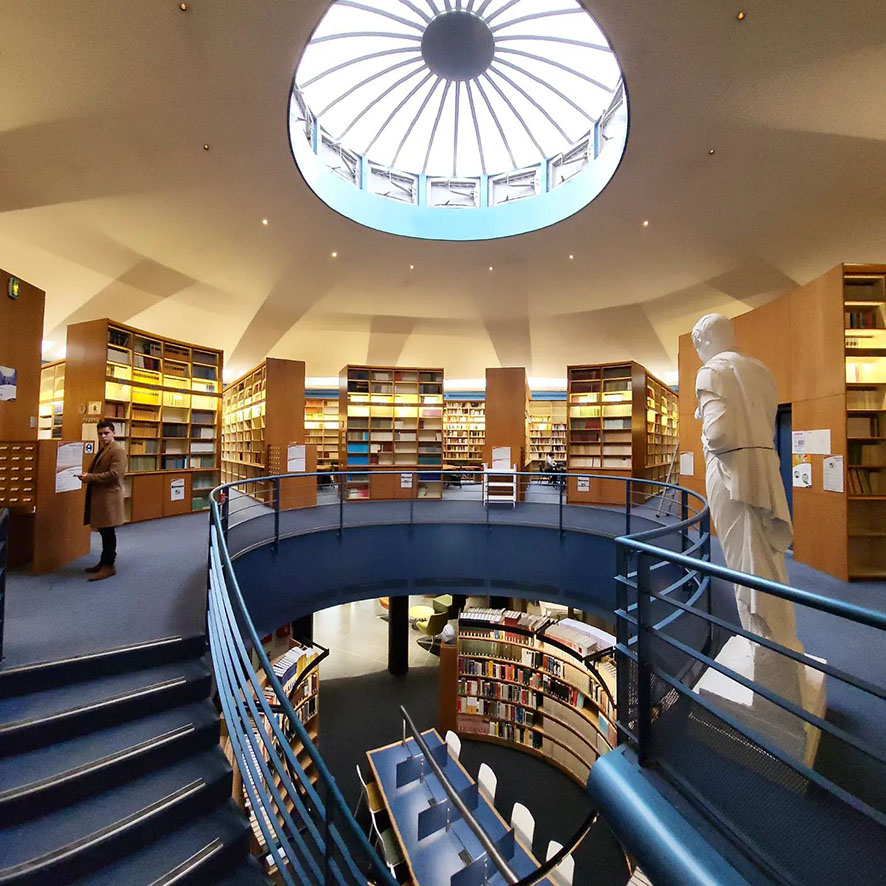|
The Robert Etienne Library is one of the four documentary spaces belonging to the Common Documentation Service of the University Bordeaux Montaigne. Named after its founder Robert Etienne (1921-2009), professor of Roman history at Bordeaux Montaigne University , the library originally brought together three research centers: Pierre Paris, Georges Radet and Charles Higounet.
|
||||
Robert Etienne followed in the tradition of Pierre Paris (1859-1931), an archaeologist and hispanist at the Bordeaux college of Letters. In the 1960s, he created an informal group on the study of the Roman Iberian Peninsula, which later became the Pierre Paris Center in 1974, that he directed until 1987. This documentation center on the ancient Iberian peninsula shared its publication services and library with the Georges Radet Center from the 1980s onwards. The Georges Radet Center focused on ancient Greece, Hellenistic culture, especially in Asia Minor and the Eastern Mediterranean. In 1992, when the House of Archaeology was built, the library took over the collection of the Charles Higounet Center, founded in 1968 by the historian Charles Higounet (1911-1988). With this collection, the library brought together multidisciplinary research on land occupation and settlement in Europe and in the so-called countries of European tradition (in the Mediterranean and Latin America). It also includes more prominent themes such as the history of towns, the fortified habitat of the medieval period, land use and settlement in Aquitaine and the Périgord, and communication routes. By bringing together these three sections, the Robert Etienne Library has a collection of publications in history, historical geography, onomastics, archaeology (including underwater archaeology), epigraphy (Latin and Greek), numismatics and ceramology. This tradition of historical and archaeological collections was followed by a collection of ancient languages and literature. |
||||
Today, the library integrates the research areas of the Ausonius laboratory into its documentary policy. The circular shape of the library offers comfort, aesthetics, and free access to all the collections. It is composed of:
Following the work carried out in 2021-2022, the ground floor includes a reception desk integrated into a space fitted out to accommodate an automatic lending machine and 3 computer stations for the public, a space dedicated to magazines and new releases, a soundproofed group work room with 8 places, and a documentary and workspace in the centre of the circular shelving. The majority of the documents in the library are freely accessible and can be borrowed by anyone. Some works, located in our reserve, are only accessible on request to the library staff. Borrowing methods are specific to the user's status and are made using an Aquipass card external reader's card You can find all the information about the library here |






